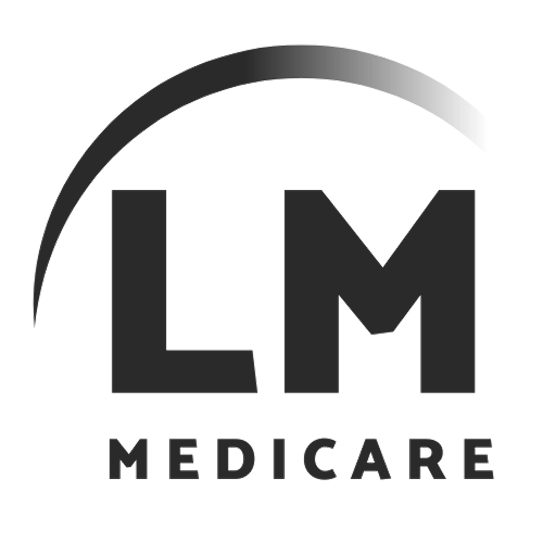Medicare advantage offers an alternative way to access your Medicare benefits.
Medicare Advantage.
Medicare Advantage, or Medicare Part C, offers an alternative way to access your Medicare benefits. Instead of being administered through the federal government like Original Medicare, these plans are provided by private insurance companies approved by Medicare.
They include all the benefits of Medicare Part A (hospital insurance) and Part B (medical insurance) while often offering extra perks like prescription drug coverage (Part D), dental, vision, and hearing care—not usually available with Original Medicare.
Why Consider Medicare Advantage?
Medicare Advantage plans are legally required to match the coverage offered by Original Medicare, and they come with added flexibility and features.
Many plans provide benefits like fitness programs, over-the-counter allowances, transportation to doctor visits, and even wellness programs. Consolidating your healthcare under one plan also makes managing your coverage easier, especially with built-in prescription drug options.
Key Features to Keep in Mind.
With its added benefits and simplified coverage, Medicare Advantage can be a powerful choice for enhancing your healthcare experience. Evaluate your options to find the plan that aligns with your requirements.
Customized Networks
Many plans work as HMOs or PPOs, meaning you’ll likely be required to visit in-network doctors and hospitals. Some may also require referrals for specialists.
Tailored Benefits
Extra perks like hearing aids, wellness classes, and dental coverage vary by plan, giving you the freedom to choose what best fits your lifestyle.
Simplicity in Coverage
Medicare Advantage combines all your Medicare needs (including drug coverage) into one convenient plan.
Costs of Medicare Advantage
Medicare Advantage plans are often appealing due to their lower out-of-pocket costs compared to Original Medicare. However, the cost structures differ significantly. Original Medicare features standardized premiums, deductibles, and co-insurance rates determined by the federal government. Meanwhile, Medicare Advantage plans have flexibility to set their own costs, which means premiums, deductibles, co-pays, and out-of-pocket maximums can vary greatly across plans and insurers.
All Medicare beneficiaries pay the same Part B premium to the government, with higher-income individuals paying more. However, some Medicare Advantage plans may charge an additional premium on top of this. The good news? Many Medicare Advantage plans offer $0 premium options, making them an attractive choice for individuals seeking potential cost savings.
Choosing a Medicare Advantage Plan
When choosing a Medicare Advantage plan, focus on more than the monthly premiums. Here’s what to prioritize for better coverage:
Check the Network: Make sure your preferred doctors and hospitals are in-network to avoid unexpected costs.
Review Service Costs: Compare expenses for specialist visits, hospital stays, and other services you require.
Confirm Drug Coverage: Ensure your prescription medications are included in the plan’s formulary.
Know Your Out-of-Pocket Maximum: This is the most you’ll pay for covered services in a year, so choose a plan that fits your budget.
Every factor can impact your healthcare experience and costs, so consider them carefully before making your decision.
Enrollment Periods
Enrollment in Medicare Advantage is available during specific time frames. Here’s what to know:
Initial Enrollment Period (IEP): Sign up when you first become eligible for Medicare. This is a 7 month eligibility period.
Annual Election Period (October 15 – December 7): Switch Medicare Advantage plans or update your prescription drug coverage.
Medicare Advantage Open Enrollment Period (January 1 – March 31): If you’re already enrolled in a Medicare Advantage plan, you can switch to another plan one time.
Special Enrollment Periods: Certain life events, like moving or losing other coverage, may allow you to make changes outside standard periods.
Dual Enrollment Period: Full Medicare and Medicaid recipients can change monthly to another plan.
Understanding these key dates ensures you can switch or adjust plans easily to suit your healthcare requests.
Pros and Cons of Medicare Advantage
Pros
All-in-One Coverage: Combines hospital, medical, and prescription drug coverage into a single, convenient plan.
Extra Perks: Includes benefits Original Medicare does not generally cover, like dental, vision, and hearing services.
Financial Protection: Features out-of-pocket maximums to limit healthcare expenses.
Cons
Limited Networks: Requires sticking to a specific network of doctors and hospitals.
Plan Rules: May require referrals for specialists or prior approvals for certain treatments.
Cost Variability: Out-of-pocket expenses can vary significantly, so it’s crucial to review plan details carefully.
Choosing with Confidence Starts Here
Medicare Advantage offers a simpler, more comprehensive alternative to Original Medicare with extra benefits and potentially lower out-of-pocket costs. Choosing the right plan isn’t something to take lightly. You will want to consider your healthcare requests, budget, and whether your preferred providers are in-network.
The right choice can save you money and ensure you get the care you require, so take the time to research and compare plans carefully. It’s a decision that deserves your full attention.



